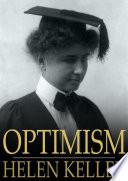
Optimism (1903)
Context: The idea of brotherhood redawns upon the world with a broader significance than the narrow association of members in a sect or creed; and thinkers of great soul like Lessing challenge the world to say which is more godlike, the hatred and tooth-and-nail grapple of conflicting religions, or sweet accord and mutual helpfulness. Ancient prejudice of man against his brother-man wavers and retreats before the radiance of a more generous sentiment, which will not sacrifice men to forms, or rob them of the comfort and strength they find in their own beliefs. The heresy of one age becomes the orthodoxy of the next. Mere tolerance has given place to a sentiment of brotherhood between sincere men of all denominations.
